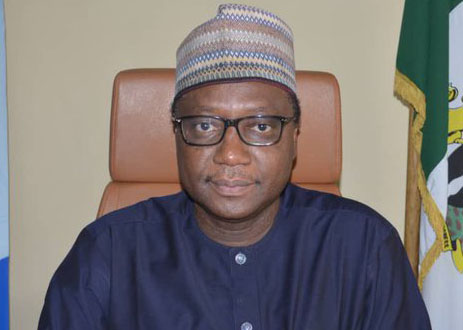
The advice of the Revenue Mobilisation Allocation and Fiscal Commission (RMAFC) through its Chairman, Mohammed Bello Shehu, on reducing the cost of governance is most instructive, coming from an agency of government that should know. Since governments at all levels appear unimpressed by a similar admonition from the private sector and the media, the RMAFC advocacy should be what the governments need to check their spending excesses. The RMAFC Chairman had described Nigeria’s governance cost as one of the highest in sub-Saharan Africa.
While Shehu is voicing out the general belief on the need to ensure prudence in the management of public resources, on the other hand, he sought to identify with the federal government as a “good team player” when he indicated that the current government is an example of cost-cutting measures in the management of public resources. The truth is that both the states and the federal government can do much more to reduce governance costs, by cutting down on frivolous spending, focusing on projects that directly benefit the people, reducing the size of their bureaucracy and freeing more funds for critical infrastructure.
RMAFC Chairman, noted that the high cost of governance has impeded infrastructure and social services, leading to reduced investment, high unemployment, and rising insecurity. Shehu noted that Nigeria’s expensive bureaucratic structures, overlapping ministries and agencies, and persistent corruption contribute significantly to governance costs.
“The high expenses related to public service delivery, security costs, and infrastructure failures, combined with multiple salaries, severance allowances, and domestic and foreign debt burdens, exacerbate the challenge,” he added. The Commission suggested the immediate implementation of the Orosanye report, which recommends streamlining government structures and reducing political appointees.
By reducing governance costs, the RMAFC believes Nigeria can better address infrastructural, healthcare, and educational needs, ultimately fostering a more sustainable economic environment.
The government, at all levels, are not known to have paid enough attention to pruning huge public expenditures. President Bola Tinubu fired the first salvo in this regard with his government’s presentation of a supplementary budget to the National Assembly which contained items that were neither urgent nor essential to oil the machinery of government. Ordinarily, those requirements should have been the basic yardsticks for procuring a supplementary budget. The large entourage of the President on foreign trips and the recent purchase of a new presidential jet among others were deemed to be expenditures out of tune with the country’s economic realities. These have prompted many to consider the administration as not sufficiently prudent in the management of scarce public resources. These affect the government’s budget balance with the deficits growing and the consequent resort to public borrowing. Given that the deficit is the financial gap between the projected revenue and projected expenditure, it implies that the government prefers borrowing instead of making a concerted effort to reduce the cost of governance significantly.
In the first place, it is improper that the government should allow humongous levels of public expenditure to be sustained over the years in the preparation of the annual budgets. It can be recalled that many prominent stakeholders from both the public and private sectors of the economy including the multilateral institutions have faulted the huge expenditure of the government which is running a large bureaucracy in the country, with about 50 ministries and numerous departments and agencies of government closely competing in the use of public resources with little to show in terms of credible outcomes for the benefits of the ordinary Nigerian. Why should the Presidency not drastically cut its overhead to win the people’s confidence? If anything should be prioritised at this moment, it should be the need to cut the cost of governance and do away with items that are outlandish and without a direct positive impact on the welfare and well-being of ordinary Nigerians. Many such items have constituted a serious economic drain on the country’s resources, particularly with present economic and health emergencies. This is the time for the president and his team to keep the ruling party’s promise during the electioneering campaigns to reduce the cost of governance and thus save the country from further economic bleeding. In addition, why should the salaries and total emoluments of political officeholders not be reduced drastically? At the state government levels, there is no justification for the huge amounts being set aside as security votes, particularly when revenue inflows are seriously challenged as is currently the case.
This president and governors need to send the right signals to Nigerians about their desire to make sacrifices as the people are doing. Amid widespread misery and untold poverty of the majority, what leaders worthy of that description do is to be in sync with the led, substantively and symbolically. Living a seemingly sumptuous lifestyle when the citizens are barely surviving is a complete repudiation of the spirit of service which should guide leadership. Not only can the country not afford the luxury the leaders are claiming, but it is also unconscionable to live it, even if available, in these present circumstances. This involves every hint of unnecessary material benefit to all public offices. Service is the name of the game. Nigerians should demand service, and service is what anyone in public office should give. Minimum comfort within reason is known and acceptable. But the roles of servants, which leaders are, and their masters, which the people are, become reversed and corrupted when the former live extravagantly at the expense of the latter.
One of the ways of exiting the current economic challenge is the direct focus by government in cutting down on the cost of governance. It is very critical as it will win the confidence of the people as well as minimise the incidence of resorting to borrowing. With the debt service to revenue ratio becoming unbearable, the government should get at it and get the job done. The RMAFC on its part should assist the government in focusing on this issue.






